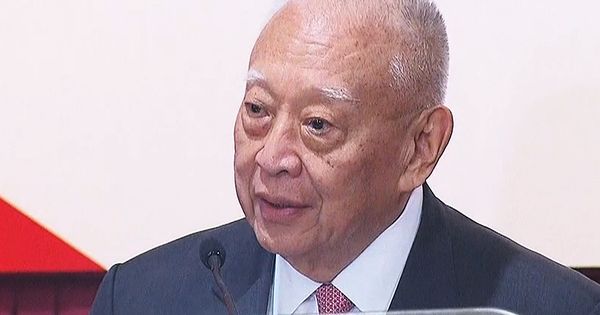Local media have cited former chief executive Tung Chee-hwa as saying that John Tsang would not be appointed Hong Kong leader by Beijing, even if he wins the upcoming election.
In response, pro-democracy parties and lawmakers criticised Tung on Wednesday, calling on the central government not to interfere in the city’s small-circle leadership election.

The Hong Kong Economic Journal reported on Wednesday morning that Tung made the comments during a closed-door meeting with his political think-tank Our Hong Kong Foundation last week.
Tung reportedly said that he “invited” former chief secretary Carrie Lam to run, in order to avoid the “embarrassing situation” in which Beijing would refuse to appoint former financial secretary Tsang.
Tung was Hong Kong’s first chief executive, serving from 1997 to 2004 when he resigned following a plunge in popularity. He has since become a vice chairman of China’s top legislative body, the Chinese People’s Political Consultative Conference.
Last month, Lam told Commercial Radio that Tung had contacted her after incumbent Chief Executive Leung Chun-ying said he would not seek a second term. She said that Tung had asked her to consider running for the top job.
‘Least preferred’
On Tuesday, Wang Guangya, director of the Hong Kong and Macau Affairs Office of the State Council, was reported to have told centrist figure Ronny Tong at a Shenzhen meeting that Tsang was Beijing’s “least-preferred candidate.” Wang reportedly said that Tsang was seemingly only trying to please people who can help him win the election.
Another centrist figure Tik Chi-yuen, who also met with Wang last week, made similar comments. Tik quoted Wang as saying that “Carrie Lam had relatively better capabilities.”

‘Handpicked’
In response to the reports, the pro-democracy Civic Party called on Beijing to halt all comments that would suggest it is “handpicking” the chief executive.
“Releasing ‘news’… and pressuring electors [saying] that it will not accept the result of an election, would deprive the election of all meaning,” said the party in a press release. “It would be the same as handpicking the chief executive, and ‘One Country, Two Systems’ would be dead.”
“If [Beijing] refuses to appoint someone who is elected, it must give a public account with a convincing justification.”
The party also cited Article 22 of the Basic Law, which prohibits all levels of government in the mainland from interfering in Hong Kong’s affairs.
Civic Party lawmaker Dennis Kwok added that the actions of the central government would only serve to infuriate Hongkongers, deprive Carrie Lam of legitimacy, and turn her administration into a “lame duck” government if she won the election.
Fellow party member Alvin Yeung called on former leader Tung to respect his own role as a national-level leader, while education sector lawmaker Ip Kin-yuen demanded that he clarify his comments.

John Tsang said he understood that Beijing had the right to appoint the chief executive and senior officials. However, he would not respond to any rumours: “as the election approaches, rumours like this will only increase.”
“This is a fair, open and just election,” he said. “I don’t see any reason why [Beijing] would not accept the election result.”
The main contenders for the small-circle chief executive election are Lam, Tsang, lawmaker Regina Ip and former judge Woo Kwok-hing. Only the 1,200 members of the Election Committee will be able to cast ballots on March 26.
